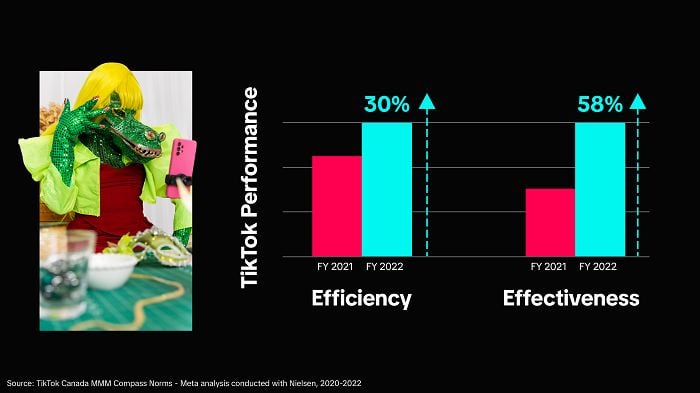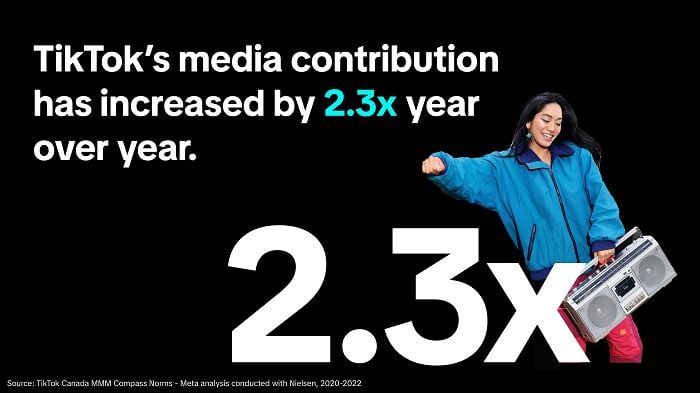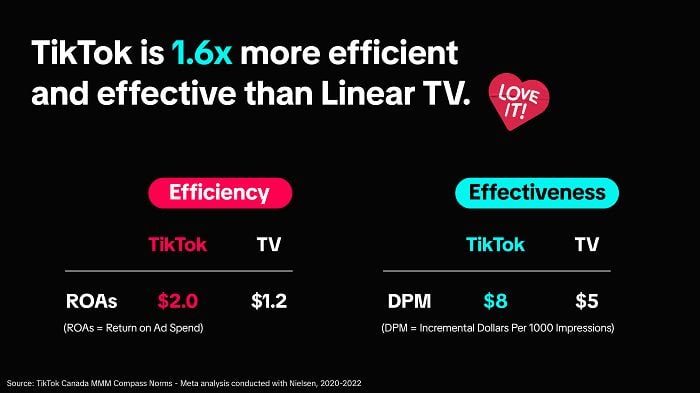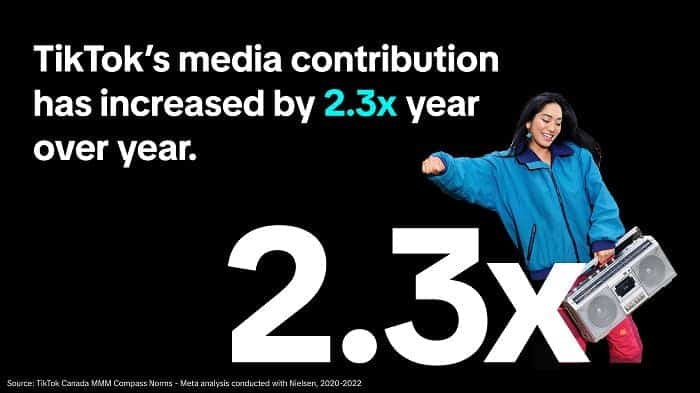TikTok has shared some new insights into how its ads are performing in the Canadian market specifically, based on new research conducted by Nielsen.
TikTok partnered with Nielsen on a marketing mix model analysis of CPG ads from Canadian brands, which provides some interesting perspective on TikTok’s relative growth as an ad option, and how it matches up with other platforms.
Though the topline notes are not huge revelations, given TikTok’s broader rise in popularity.
As per TikTok:
“In 2022, TikTok ads achieved a 30% improvement in ROAS and a 58% lift in total incremental sales per 1,000 impressions compared to 2021. Put differently, TikTok investment dollars are working harder, as every impression generated creates more value and drives more sales, with advertisers now seeing an average return of $2 per $1 spent.”

But of course, TikTok’s relative growth is a factor here, and as TikTok’s usage has expanded, so too has its value in this respect.
TikTok also says that its Canadian media sales contribution grew by 2.3x in 2022, the highest year-over-year growth rate compared to all other media channels.

Though again, neither of these results are overly surprising. TikTok wasn’t really a factor for advertisers till 2021, so seeing that it’s gaining more attention in this respect is not really a big surprise.
But this one is interesting:

TikTok ads, the data shows, are 1.6x more powerful at driving both sales effectiveness and efficiency than TV campaigns.
“In fact, when diving deeper into the results across all Nielsen MMMs, on average, TikTok ROAS outperformed TV by 63%.”
This underlines the fact that TikTok is a key entertainment platform, especially for younger users, and it’s less a social network in this respect than a genuine rival for user attention on the scale of TV.
That‘s especially true for younger audiences, who barely watch traditional TV anymore. That’s why all the shows on TV are aimed at older demographics, because younger consumers simply aren’t tuning in, as they spend more of their time on YouTube, TikTok, IG, etc.
This is a key consideration for all brands, that TikTok isn’t necessarily trying to compete with Facebook, it’s looking to challenge TV for broader resonance. As such, you should be approaching TikTok promotions like you would TV, aligning your messaging and content around user trends for broad-reaching exposure campaigns.
And the best part is, TikTok ads don’t require the high production costs of TV content.
Organic style TikTok content performs best in the app, and using some of the more common, stand-out techniques and trends, which you can dig into via TikTok’s “Top Ads” showcase, can help you find more interesting, engaging ways to frame your promotions.
You can read TikTok’s full Canadian CPG study notes here.



